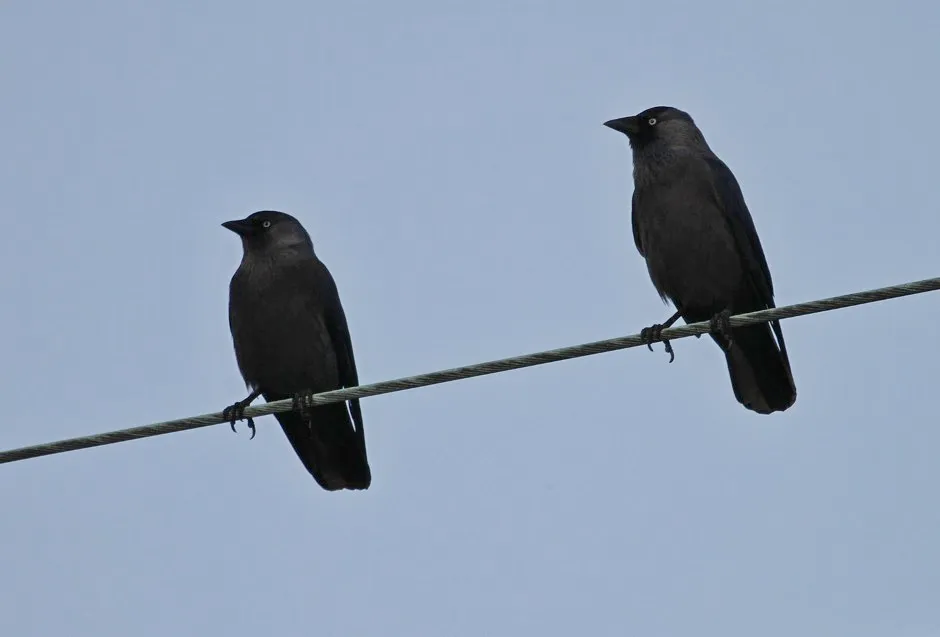When it comes to safety in numbers, jackdaws are keen to join the mob.The birds are more likely to band together to drive off predators if lots of their feathered friends are up for the fight, new research suggests.
A study found that when jackdaws call out to show they are willing to mob a predator, others join in.Scientists said this suggests the birds use a form of counting when deciding whether to join the crowd.
Read more about birds:
They can also identify the calls of individual members of their flock, according to researchers from the University of Exeter.
Lead author Jenny Coomes said: “Many species of birds use mobbing to drive off predators. Although this is fairly common behaviour, little is known about how mobbing is initiated. There is safety in numbers, so individual birds might benefit from assessing how many others are mobbing before joining in.”
Scientists played recordings of jackdaw calls, featuring different numbers of birds calling, near jackdaw nests.

The study, published in the scientific journal Biology Letters, found that playbacks simulating three or five callers tended to recruit more individuals than playbacks of one caller.
Dr Alex Thornton, of the Centre for Ecology and Conservation on Exeter University’s Penryn Campus in Cornwall, said: “The jackdaws in our experiments always heard the same number of alarm calls, but more birds joined in if the calls were produced by multiple different individuals.
“This shows that jackdaws can tell one another’s voices apart to work out how many birds are involved in a mob. Although our findings suggest that jackdaws use a form of counting, they also indicate there may be limitations to this ability.”
He added that, while there was an overall increase in recruits when recordings of more birds calling were played, there was no clear evidence that the number of recruits was higher in response to five versus three callers.
Follow Science Focus onTwitter,Facebook, Instagramand Flipboard